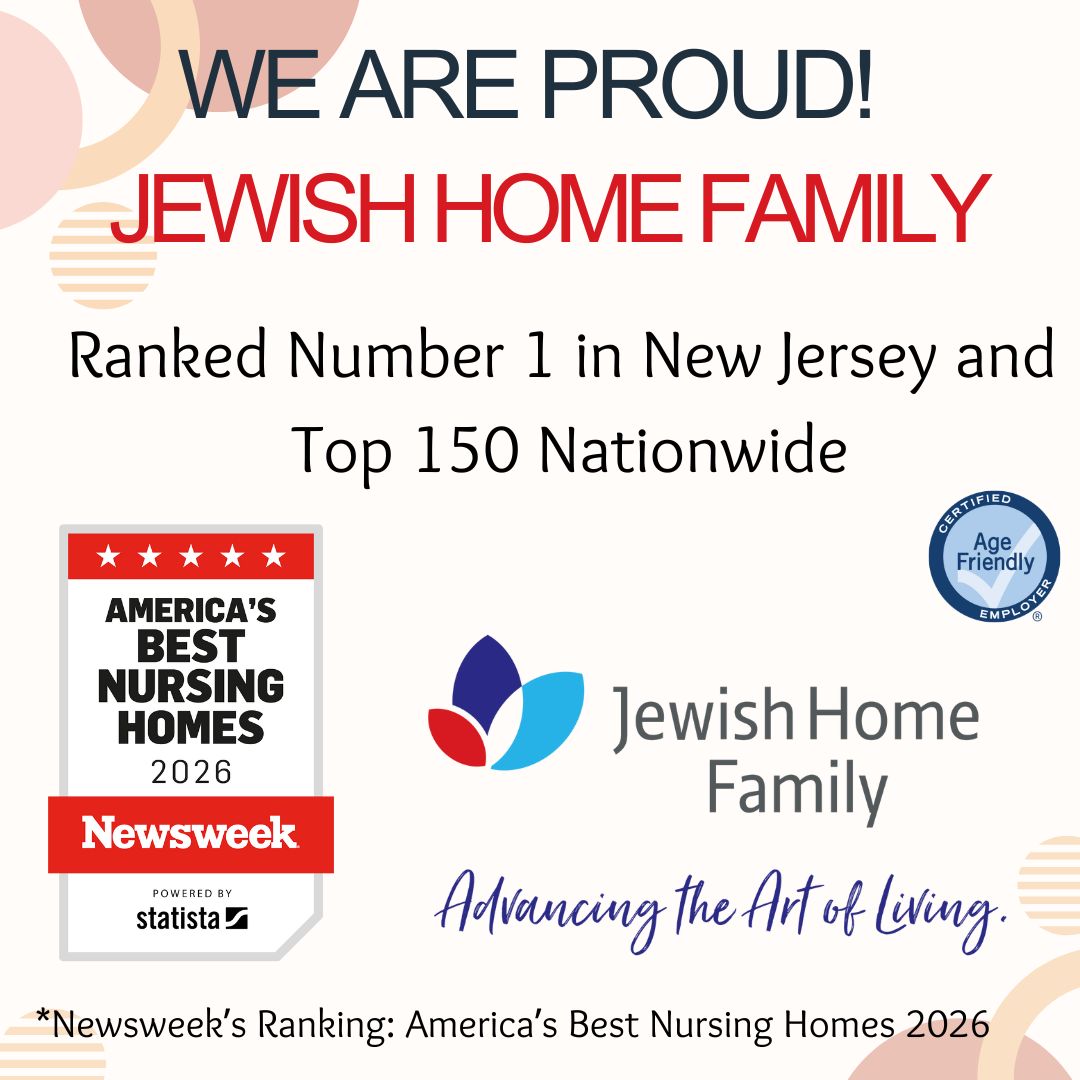Assisted Living Near Upper Saddle River: Why Jewish Home Family Is Worth The Drive, If You Live In New Jersey: Discover why Jewish Home Family in Upper Saddle River, New Jersey is the ideal assisted living community worth the journey if you reside in the Garden State
Jewish Home Family in the vicinity of Upper Saddle River offers a convenient location that is easily accessible from various parts of New Jersey. Whether you are seeking a warm and welcoming community for yourself or a loved one, Jewish Home Family provides top-notch care and support tailored to individual needs. Our team of dedicated professionals is committed to ensuring a comfortable and enriching living experience for all residents.
Location and Accessibility at Jewish Home Family
Exploring the ease of reaching Jewish Home Family in New Jersey:
- Conveniently situated in a tranquil neighborhood
- Accessible via major highways and public transportation
- Close proximity to medical facilities and shopping centers
Discover the seamless connection to essential services and amenities, making daily life stress-free for residents and their families. Jewish Home Family’s strategic location fosters a sense of security and convenience, ensuring that residents can easily access everything they need within reach.
Jewish Home Family 10 Link Dr, Rockleigh, NJ 07647, United States, +12017841414
For more information – Click Here
Specialized Care Services for Seniors in New Jersey
When it comes to providing specialized care services for seniors in New Jersey, it’s essential to consider a range of options to enhance their quality of life. Here are some insightful approaches to ensure seniors receive the best care possible:
- Personalized Care Plans: Tailoring care plans to meet the unique needs and preferences of each senior resident can significantly improve their overall well-being.
- Therapeutic Activities: Engaging seniors in a variety of therapeutic activities such as art therapy, music therapy, and pet therapy can promote emotional and physical healing.
- Integrated Health Services: Offering integrated health services that encompass both medical care and holistic wellness practices can lead to comprehensive and effective care outcomes.
By focusing on these key aspects of specialized care services, seniors can experience a higher quality of life and improved overall health and well-being. Providing a supportive and nurturing environment that caters to their individual needs is paramount in ensuring seniors thrive and lead fulfilling lives in their later years.
Expert Staff and Medical Support
When it comes to ensuring comprehensive care and attention for residents, the backbone of any assisted living facility lies in its staff and medical support system. Here are some key aspects to consider:
- Medical Professionals: A team of experienced doctors, nurses, and specialists work tirelessly to provide round-the-clock medical care.
- Personalized Care Plans: Each resident receives a tailored care plan designed to address their specific needs and preferences.
- Emergency Response: Prompt and efficient emergency response services are crucial in ensuring the safety and well-being of residents.
Moreover, the presence of advanced medical equipment and technology on-site can significantly enhance the quality of care provided. The integration of telemedicine services allows for remote consultations and quick access to specialized medical advice.
It is essential for the staff to undergo regular training and skill development programs to stay updated with the latest medical practices and protocols. This continuous learning approach ensures that residents receive the highest standard of care.
Additionally, fostering a compassionate and empathetic environment within the facility can greatly impact the overall well-being of residents. The emotional support provided by the staff plays a vital role in creating a sense of community and belonging.
By prioritizing the recruitment of skilled and empathetic professionals, assisted living facilities can create a nurturing and supportive environment where residents feel valued and cared for.

Engaging Activities and Programs: Enriching the Lives of Residents Every Day
Residents at our community enjoy a variety of stimulating activities and programs that cater to their diverse interests and preferences. Here are some ways we ensure that our residents’ lives are enriched on a daily basis:
- Interactive Workshops: Engaging workshops led by talented instructors provide residents with the opportunity to learn new skills and hobbies.
- Wellness Classes: From gentle yoga sessions to invigorating dance classes, our wellness programs promote physical health and mental well-being.
- Artistic Expression: Residents can unleash their creativity through painting classes, pottery sessions, and other artistic pursuits.
Our community values the importance of social connections and offers a range of activities that foster meaningful relationships among residents. Through group outings, themed parties, and collaborative projects, residents have the chance to build lasting bonds with their neighbors.
Furthermore, our programs are designed to promote cognitive function and mental agility. Brain teasers, trivia nights, and memory games challenge residents to keep their minds sharp and engaged.
Overall, our commitment to providing a dynamic and enriching lifestyle for residents sets us apart as a community that prioritizes holistic well-being and meaningful experiences.
Personalized Living Spaces: Creating Comfortable and Homely Environments
When it comes to crafting living spaces that exude comfort and homeliness, attention to detail is paramount. Here are some insightful tips and considerations:
- Diverse Textures: Incorporating a variety of textures can add depth and visual interest to a room. Think plush rugs, smooth leather, and rustic wood elements.
- Customized Lighting: Lighting plays a crucial role in setting the ambiance of a space. Utilize a mix of overhead lighting, task lighting, and accent lighting to create a warm and inviting atmosphere.
- Flexible Furniture Arrangements: Arrange furniture in a way that promotes conversation and flow while allowing for easy reconfiguration to accommodate different activities.
Moreover, integrating personal mementos and cherished possessions can infuse a space with character and reflect the unique identity of its inhabitants. By curating a collection of artwork, photographs, and decorative items, residents can create a space that truly feels like home.
| Pros | Cons |
|---|---|
| Enhances comfort and sense of belonging | Requires ongoing maintenance and upkeep |
| Promotes individuality and self-expression | May lead to clutter if not carefully curated |
| Creates a welcoming and inviting atmosphere | Can be challenging to find the right balance between personalization and functionality |
- Expert Tip: Consider using area rugs to define different zones within a room, such as a reading nook or a dining area.
- Quantitative Measurement: Aim for a balance of colors and patterns to prevent the space from feeling overwhelming.
- Insightful Analysis: By incorporating elements of nature, such as plants or natural materials, residents can bring a sense of tranquility and serenity into their living spaces.
Testimonials and Community Feedback
When it comes to gaining insights into the experiences of families choosing a living community, testimonials and community feedback play a crucial role. Real-life stories and feedback can provide a deeper understanding of what to expect and help in making informed decisions.
Here are some insightful points to consider:
- Personal Accounts: Hearing firsthand experiences from families can offer a unique perspective on the quality of care and services provided.
- Emotional Impact: Testimonials often convey the emotional connection families have with the community, shedding light on the supportive environment.
- Quality Indicators: Community feedback can serve as indicators of the overall quality of life and satisfaction levels among residents and their families.
Moreover, analyzing the themes and sentiments expressed in testimonials can reveal patterns and common threads that highlight the strengths of the community. Look for consistency in positive feedback regarding staff professionalism, compassionate care, and a sense of belonging within the community.

